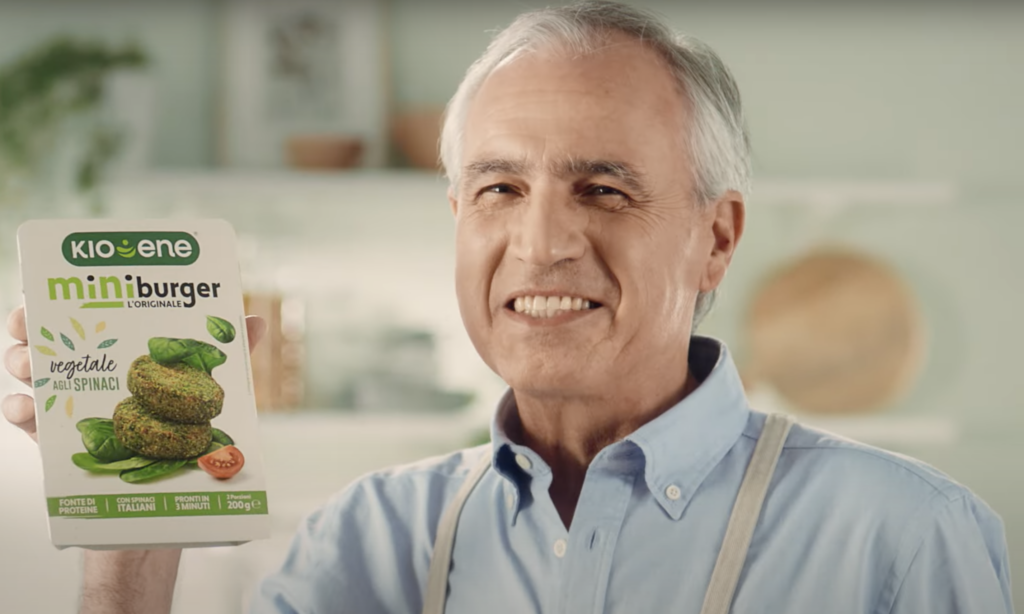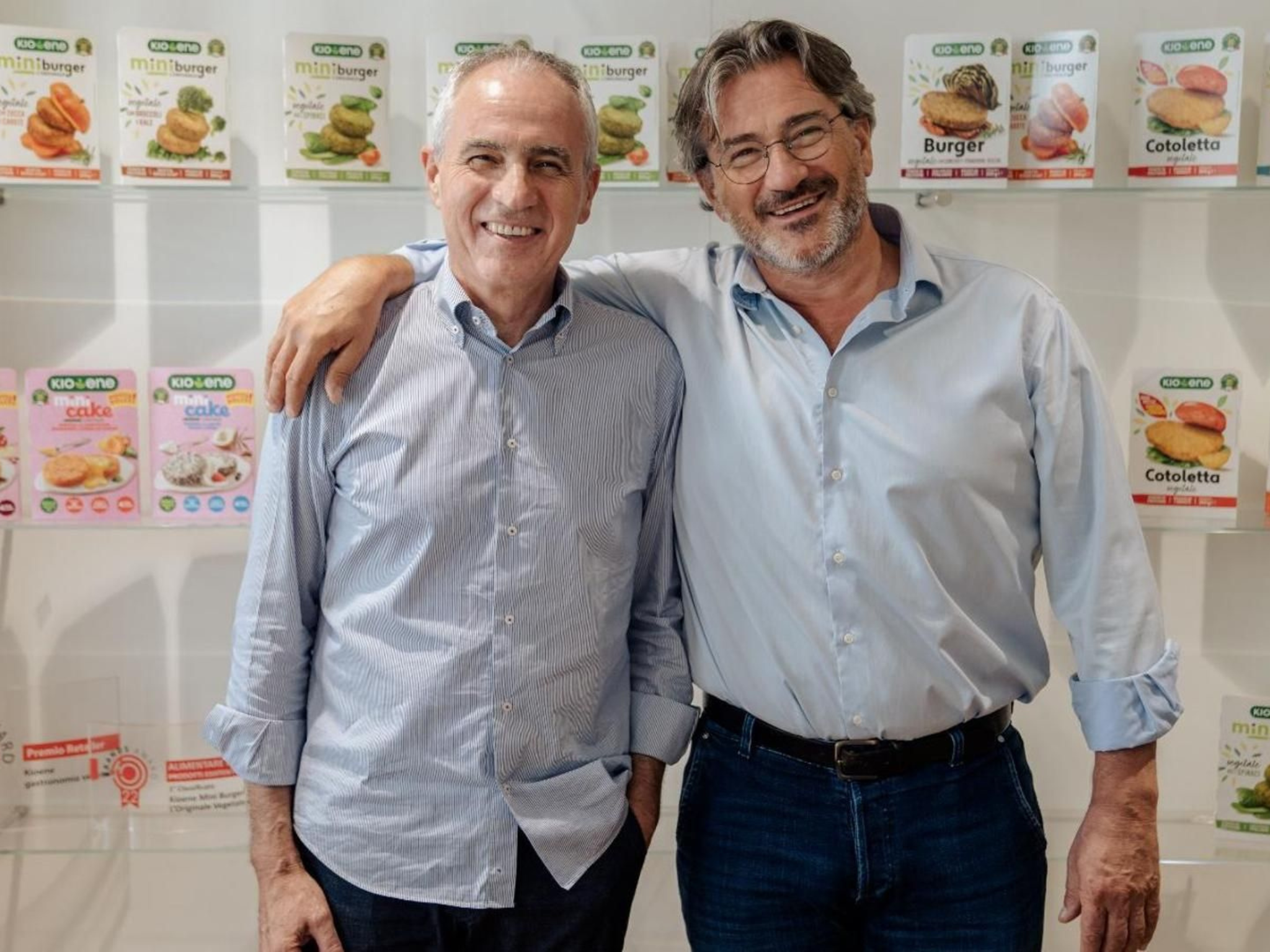After 136 Years, Italy’s Gruppo Tonazzo is Ditching Meat for Plant-Based
5 Mins Read
Italian legacy meat producer Gruppo Tonazzo is shuttering its meat business to solely focus on plant-based proteins via its Kioene brand.
Driven by its impact on the environment and people’s health, one of Italy’s oldest meat manufacturers is going vegan.
Padua-based Gruppo Tonazzo, which began as a butcher shop in 1888, has announced that by the end of the year, it will divest its meat business. The company will switch its entire focus on plant proteins through its long-running Kioene brand, which itself has been around since 1988 and is an established leader in the country’s vegan market.
“We are embarking on the third revolution in our company’s history, and – we hope – in the sector as well,” said CEO Stefano Tonazzo, calling it “a gesture of great responsibility towards the environment and the nutritional wellbeing of future generations”.
This was echoed by his brother Albino, who is CEO of Kioene: “This is a choice that we have carefully considered within the family and shared with our collaborators, a decision through which we want to make our contribution to safeguarding the planet and promoting an increasingly conscious diet.”
Francesca Gallelli, public affairs consultant at alternative protein think tank the Good Food Institute (GFI) Europe, told Green Queen: “This decision demonstrates that alternative proteins are not a threat, but rather a chance for the conventional meat sector to diversify, innovate, and enhance its offerings to meet consumers’ demand – especially when backed by deep expertise and the strength of the ‘Made in Italy’ brand.”
Embracing vegetables for people and the planet

The makings of the decision can be traced back to the establishment of Kioene all those years ago, the idea for which came about during a trip the Tonazzo brothers took to São Paulo. “We woke up very early and left with one of our suppliers to visit the slaughterhouses outside the city,” Albino recalled in an interview with Nord Est Economia last year.
“On the way, we saw an endless line of trucks stopped on the road. We asked what it was. It was soy, destined for animal feed,” he said. “It was shortly after, during dinner, that my life changed: they explained to me that the energy needed to produce one unit of animal protein was the same as that needed to produce 12 units of plant protein. An absurd ratio.”
It sparked a research effort that ended in Albino and his team creating some of the first soy burgers on Italian supermarket shelves. That lineup has since expanded to include a whole-food focus, using vegetables like aubergines, broccoli, kale and spinach as the base, and these propelled the brand’s market success.
Apart from the veggie burgers, its current portfolio also includes falafels, cutlets, and chicken fillets (though these contain eggs and aren’t vegan) in both fresh and frozen options. Its entire lineup has over 100 SKUs – including alt-dairy offerings – and has penetrated 2.3 million households in Italy (around 10% of the total).
In the last decade, Kioene has become a major money maker for Tonazzo, so much so that the plant-based burgers alone made up €50M of its €80M turnover in 2023 (a 63% share).
“While our family has been involved in the meat industry for five generations, nearly 40 years ago, we began a shift by introducing plant-based protein alternatives,” said Stefano. “With the same spirit of innovation and foresight, we are now closing all meat-related operations to focus entirely on plant-based proteins and our Kioene brand.”
Tonazzo leans into Italy’s fast-growing plant-based market

Tonazzo’s factory in Villanova di Camposampiero will continue to produce plant-based products, and employees in the meat business will be offered new roles within the company to ensure a just transition, which is earmarked for December 31.
“As pioneers and key players in this market, we feel a deep responsibility towards future generations, and we want to help protect the Earth from continuous environmental deterioration. We are aware of the need to help people take care of their wellbeing, starting with food,” Albino said.
“This is how we aim to contribute to change and collective awareness, and we are convinced that the market and consumers will follow us once again.”
Italians are actively eating less meat. A pan-European survey in 2023 found that the country had the joint-highest share of consumers (59%) looking to cut back on guanciale, vitello, pancetta and the like. This was primarily driven by concerns around health (54%), antibiotic use (17%), and the environment (16%), in line with the reasons Tonazzo is saying arrivederci to meat.
It does seem that the company is following consumer trends: among the Italians reducing meat, most want to replace it with legumes (57%) or legume-based proteins (43%), with the desire for plant-based meat lower at 39%. Kioene’s portfolio plays straight into this trend.
That said, it also comes at a time when meat analogues are the second-fastest-growing segment in Italy’s vegan sector, behind only plant-based cheese. In 2023, retail sales of meatless products in Italy swelled by 13%, nearly reaching €200M – only milk alternatives had higher sales, according to GFI Europe.
This isn’t a one-off. Plant-based meat sales are actually up by 24% from two years ago, and in the first four months of 2024, sales are 10% higher than the corresponding period last year.
“As more Italians incorporate plant-based meat into their diets, it’s inspiring to see a historic meat company embracing the potential of alternative proteins,” said Gallelli.



